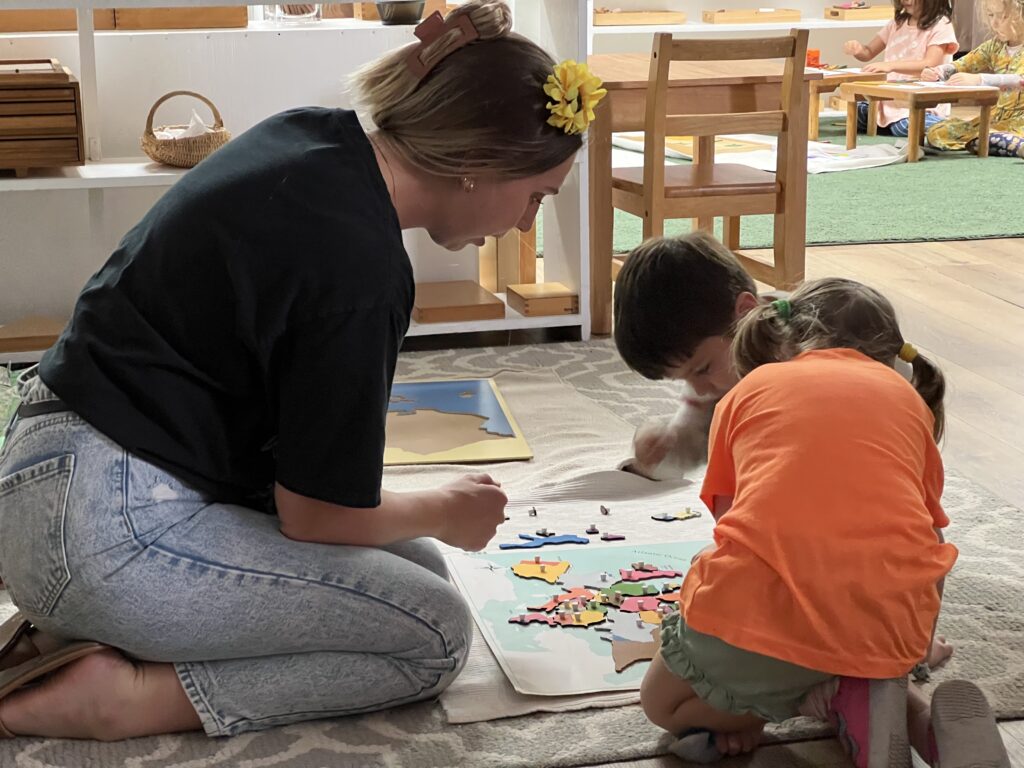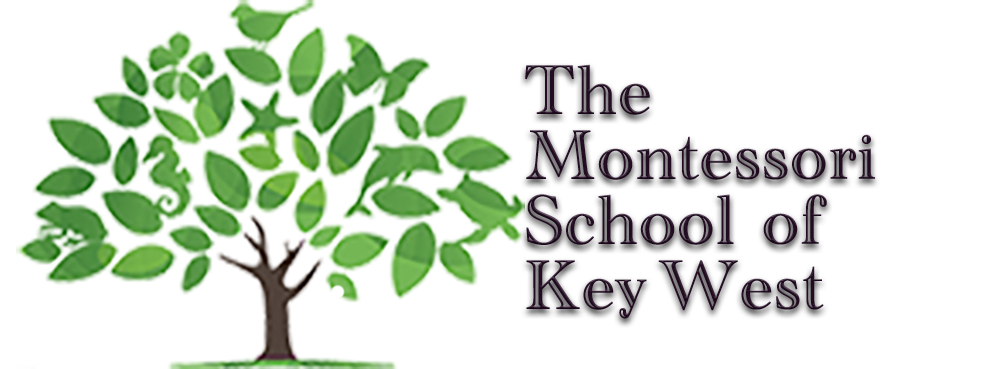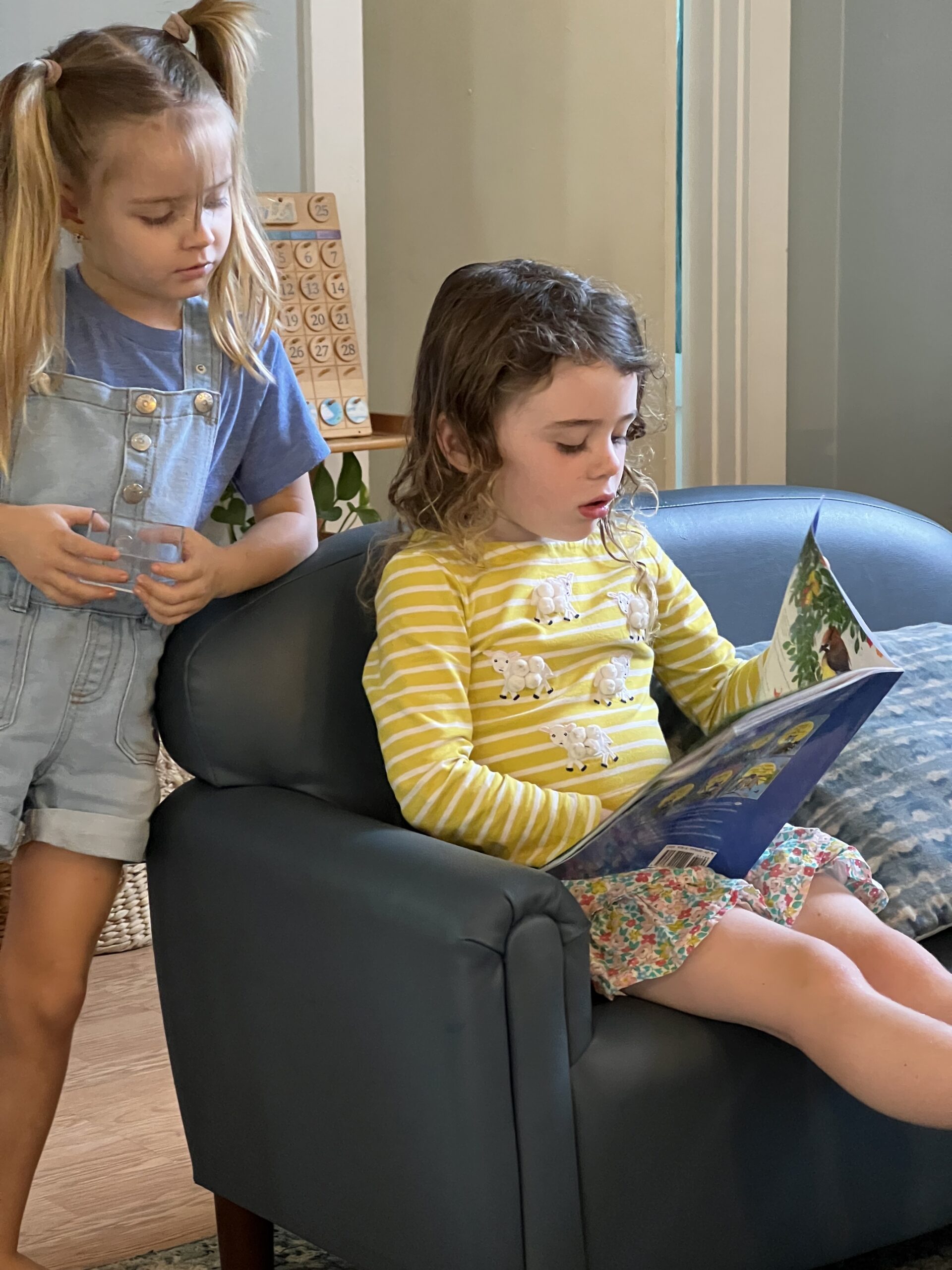
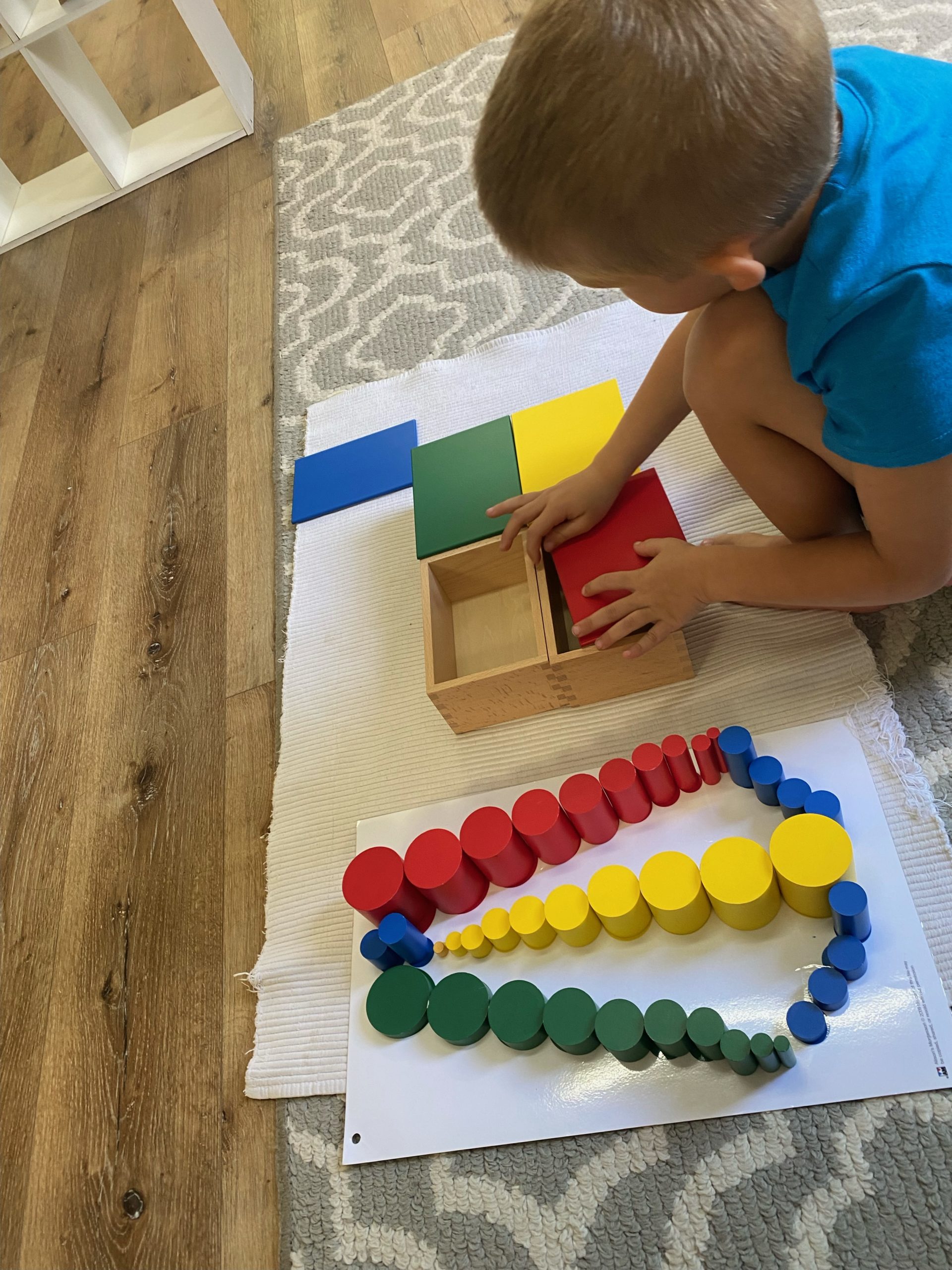
Our Early Childhood Communities
Ages 3 to 6
Montessori encourages children to learn from each other. Our early childhood classrooms, also known as primary classrooms, are made up of 20 to 25 children aged three to six. The multi-age environment gives children the opportunity to learn from others. We give children lessons individually or in small groups and encourage them to explore materials and activities carefully selected and sequenced to cultivate independence and concentration. The classroom and school communities tend to be rather stable, with just the oldest third moving on to the next level each year. With children growing together over many years, the children and adults forge close relationships.
The Prepared Environment
We refer to our Montessori classrooms as a “prepared environment.” This name reflects the care and attention given to creating a learning environment that reinforces the children’s independence, creativity, imagination, and intellectual development. The children tend to become so involved in their work that visitors are immediately struck by the peaceful atmosphere, frequently remarking on how the classrooms feel comfortable, safe, and calm.
Montessori classrooms tend to fascinate children and their families. They are bright, warm, and inviting, filled with plants, animals, art, music, and books. They are equipped with intriguing learning materials, mathematical models, maps, charts, artifacts, scientific materials, a natural science center, music, and art. Food preparation and flower arranging invite collaboration.
In her book, The Montessori Method, Dr. Montessori describes the transformation that took place during the first few months of school, as the children evolved into a “family.” They prepared and served the daily meals, washed the pots and dishes, helped the younger children bathe and change their clothes, swept, cleaned, and worked in the garden. These very young children developed a sense of maturity and connectedness that helped them realize a much higher level of their potential as human beings.
The Montessori Guide
Montessori Children’s Houses are organized, arranged, and managed by trained Montessori guides. We call them guides, rather than teachers because they play different roles. They are trained observers, carefully presenting activities to develop language, reading, math, music, art, practical life, and science skills when the child is developmentally ready.
It may take a moment to spot the Montessori guide within the prepared learning environment. They will normally be found working with one or two children at a time, advising, presenting a new lesson, or quietly observing the class at work.
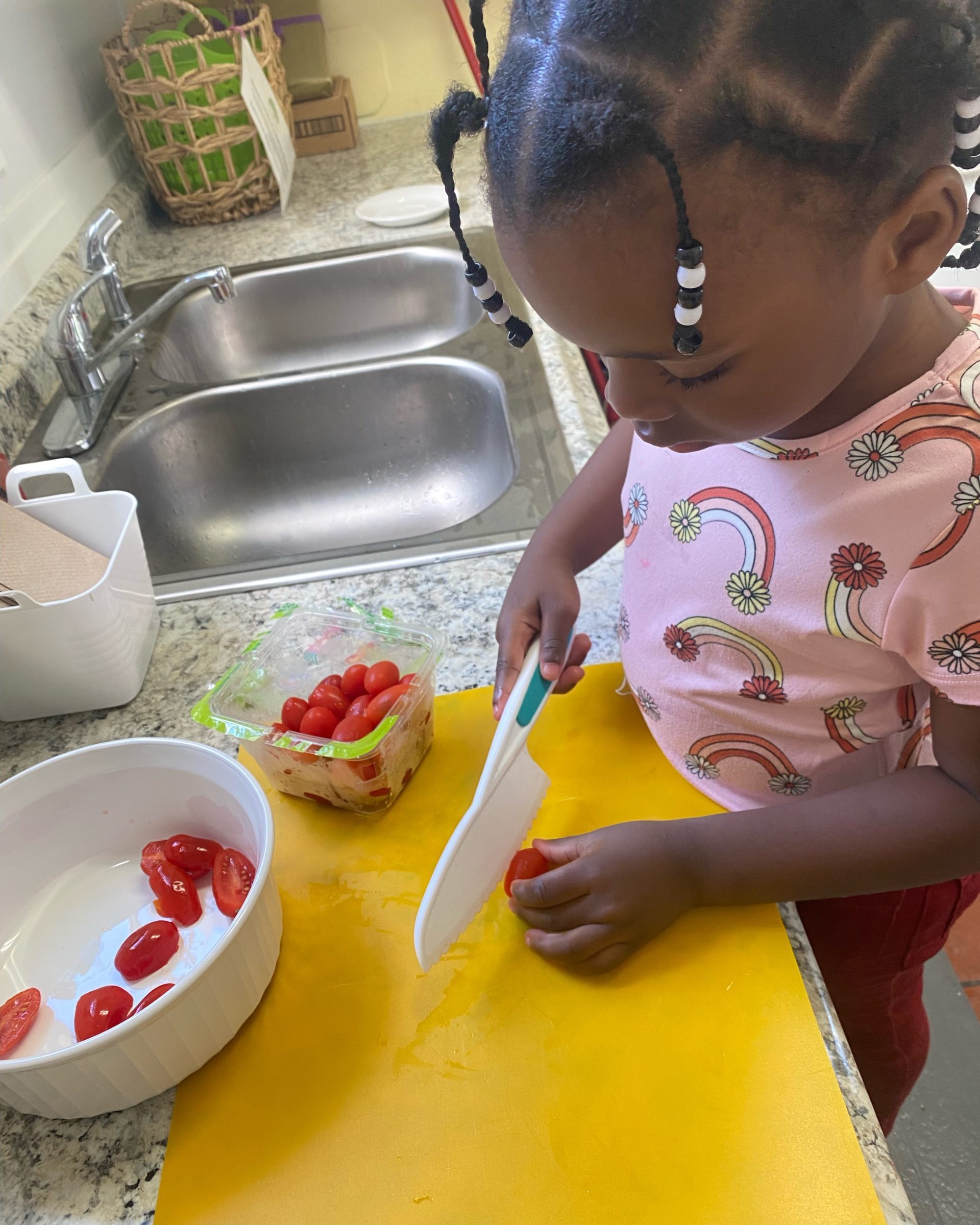
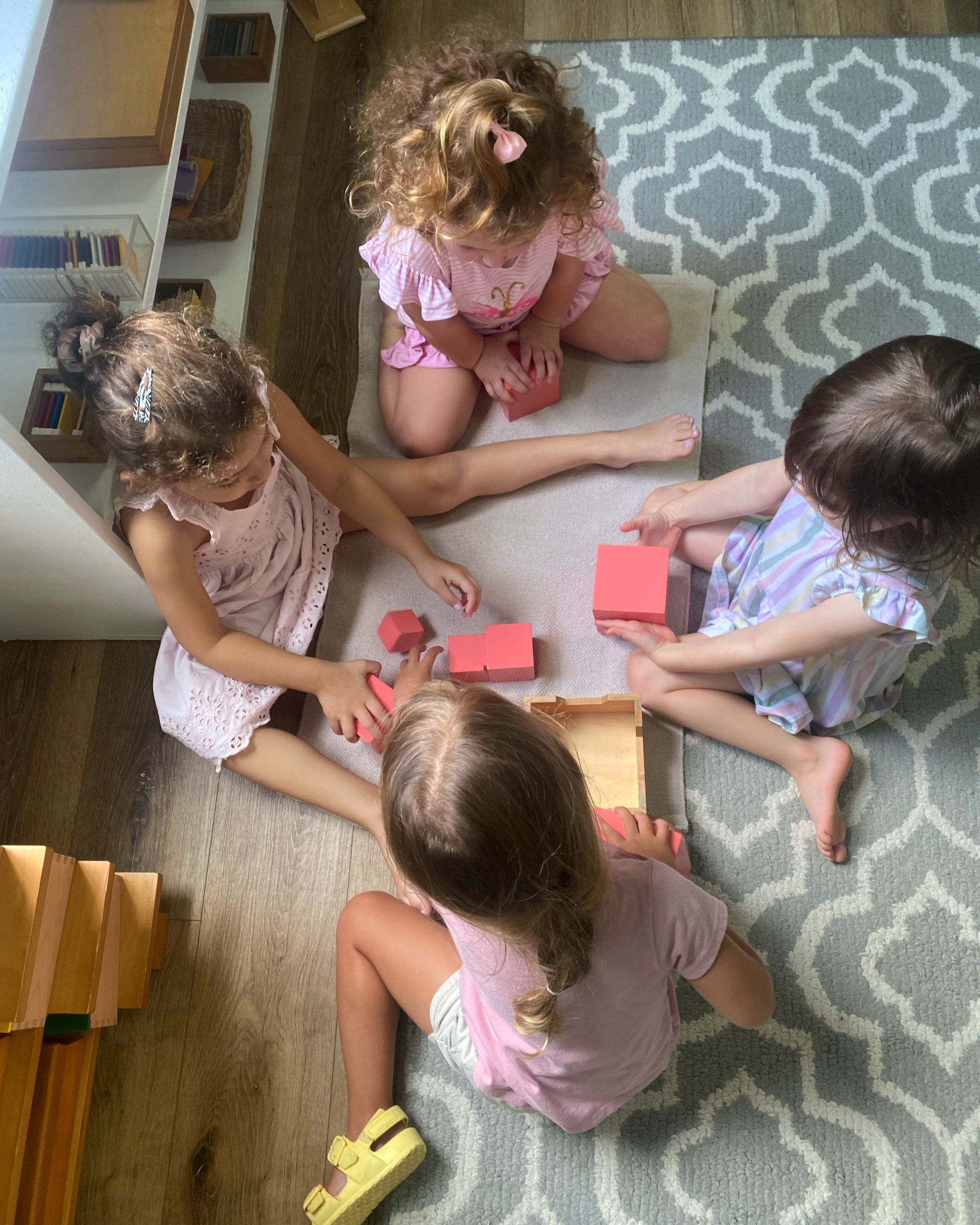
The Children’s House
This is the children’s community. They move freely within it, selecting work that captures their interest rather than participating in all-day lessons and projects selected by the teachers. In a genuine sense, even young children are responsible for the care of their own child-sized environments. When they are hungry, they prepare their own snack and drink. They go to the bathroom without assistance. When something spills, they help each other carefully clean things up.
Since the first Children’s House opened in 1907, parents have been amazed to see small children in Montessori classrooms cut raw fruits and vegetables, sweep and dust, carry pitchers of water, and pour liquids with barely a drop spilled.
The children normally go about their work so calmly and purposely that it is clear to even the casual observer that they are the masters in this environment: a “Children’s House.” It is here, in the Children’s House, that children develop good work habits and a sense of responsibility for their work and the environment. The goal is for children to learn how to take care of themselves, others, and the world around them.
